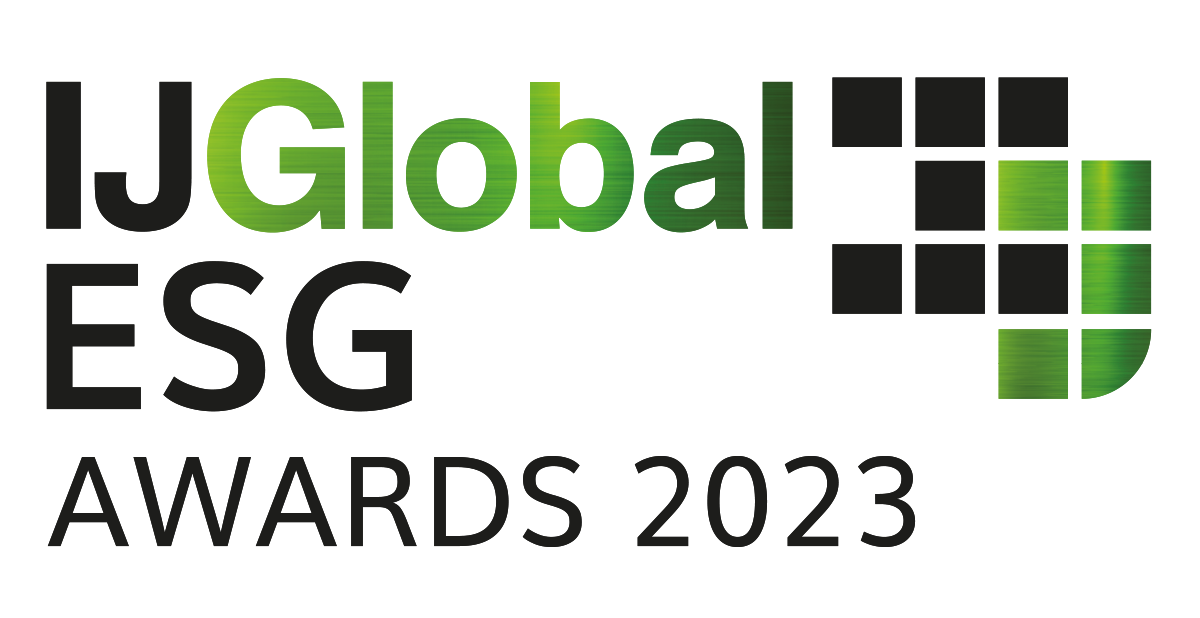IJGlobal ESG Social Award – Atlas Renewable
Atlas Renewable is back to win another IJGlobal ESG Award, this time for its Ed-Mundo Project in Brazil which one of the independent panel of judges described as a “great example of the Just Transition".
The Latin American renewable energy developer was singled out for honours in the 2021 awards for Jacarandá Solar Project and it's back this year – under new ownership – with another stellar example of leadership in the ESG field.

Another judge adds: “The Ed-Mundo Project showcases noteworthy contributions to facilitating access to connectivity, education and skills for robotics in solar energy through an innovative, holistic programme that offers training in technical and commercial skills to disadvantaged youth in the remote Brazilian project host community.”
Yet another judge celebrates an “impressive initiative” saying: “The final statement is a rare appreciation of the value ‘extracted’ by infrastructure developers in remote regions – even if it is just sunshine – and the potential for an exchange of value that can be life changing for the land's ‘true owners’.”
Atlas Renewable Energy was acquired last year by Global Infrastructure Partners – closing October 2022 – from Actis, securing GIP one of the leading ESG players in LatAm.
Having already been voted by the IJGlobal independent panel of judges to win an award and subsequently featuring significantly in IJ editorial, it seems likely it will continue to play an impressive role in this space for years to come.
But for this year’s awards, it is the Ed-Mundo Project in Brazil that is being singled out for honours.
Ed-Mundo Project
The Ed-Mundo Project launched in May 2022 and is being implemented in Carnaíba do Sertão, a rural area in the municipality of Juazeiro, Bahia, which is host to around 9,000 inhabitants.
In this scenario, Atlas Renewable Energy – which has operations in the region and the purpose of leaving a positive socio-environmental legacy to the communities surrounding its projects – joined IPTI, a non-profit institution that generates social technologies to promote human development.
The partnership enabled the implementation of 2 social innovations in the region: CLOC (acronym in Portuguese for Creativity, Logic, Opportunity and Growth) and ON (Oficina de Negócios / Business Workshop), which together make up Ed-Mundo.
The programme is aimed at training young people in programming, IT, robotics and entrepreneurship in communities of extreme poverty that are distant from large population centres.
The project allows students to become protagonists of social transformation and generation of work and income for the community.
For the implementation, partner schools were identified as well as local instructors, who were put through training. That was followed by sensitization sessions with the students before classes began, followed by the classes themselves.
In addition, the teams carried out visits to Atlas operations and Inspiration Workshops, bringing young entrepreneurs from other communities and company employees to share experiences.
At the end of the programme, graduates have their business pitches evaluated, in addition to being able to develop robotics prototypes linked to the solar energy area.
From the start of classes until the end of June (2023), a total of 5 were held with a total of 64 students between 13 and 17 years of age. It achieved impressive diversity with 49% female participation, reflecting Atlas' commitment in this space.
Most of the students involved in the programme did not have access to computers and received this through the project.
As to entrepreneurial flair, 24 pitches were presented in across a range of business sectors from gaming through to bookstores, customer-customised clothing store, confectionery, beauty salons, among others.
Social impact
The impact of Ed-Mundo includes the expansion of repertoire and the acquisition of skills that were outside the limits of the students’ family and school environment, which will be measured at the end of the project by a comparative analysis between the community that received the project and other locations not reached.
In order to promote continuity of the cycle of opportunities open to students, Atlas approached public and private organisations in the region to identity minor apprenticeship or high school internship opportunities for Ed-Mundo students.
According to the submission: “A single opportunity – this is what young Brazilians born and raised in regions of poverty need to change their lives and feel part of society.
“These are regions with little rain and lots of sun. And this excess of sun is what has made companies like Atlas Renewable Energy come to villages like Juazeiro to generate sustainable energy.
“But the energy generated is not 100% sustainable if there is no interaction and respect for the true owners of the land, the people who have been battling droughts for years, who plant and harvest for a living, who wait for their opportunities to arrive.
“The Ed-Mundo Project is this ray of hope. It not only empowers the students, but shows an unimagined world.
“Through knowledge about technology and entrepreneurship, it opens doors for students and their families. It brings innovation, job opportunities, new connections and especially, new horizons.”
Request a Demo
Interested in IJGlobal? Request a demo to discuss a trial with a member of our team. Talk to the team to explore the value of our asset and transaction databases, our market-leading news, league tables and much more.

